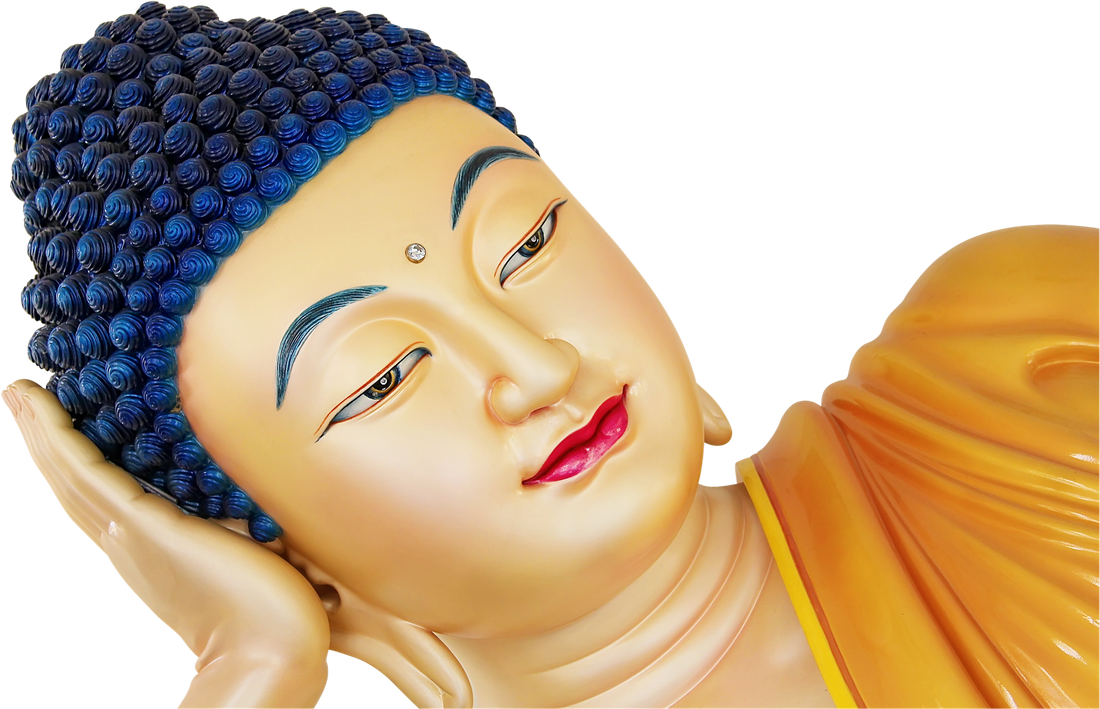This article aims to provide guidance for those new to Buddhism who may face difficulties in comprehending the rich array of its teachings and traditions. Topics including the necessity of taking refuge, the observance of various precepts, and the differentiation between vows are explored to address common questions that may arise during the introductory phase of learning.
Taking Refuge
In Buddhism, taking refuge serves as a foundation for placing purpose in one's life and striving to improve oneself, ultimately with the goal of benefiting both oneself and others. It represents the initial step in embracing Buddhism as a way of life.
Adopting Buddhism involves seeking refuge in the Three Jewels, which consist of the Buddha, Dharma, and Sangha. Nearly all Buddhist schools include the formal rite of taking the Three Refuges, also known as Ti Samana Gamana (Pali). It is important to note that taking refuge does not involve invoking supernatural forces, but rather relies on the individual's sincerity and dedication to the vow.



The Five Lay Precepts:
The Five Precepts serve as the cornerstone of Buddhism, as they serve as the initial step towards spiritual growth and development. For the lay community, these precepts provide a fundamental framework for ethical and moral behavior, serving as the foundation upon which spiritual discipline is built.
- To refrain from killing.
- To refrain from stealing.
- To refrain from false speech.
- To refrain from sexual misconduct.
- To refrain from using intoxicants.
The Pratimoksha Vows:
The cornerstone of monastic discipline, the Pratimoksha vows provide a comprehensive set of guidelines for novice monks and nuns, consisting of 36 vows. Ordained members of the sangha, both male and female, are bound by 227 to 354 vows, which are derived from the Vinaya, the authoritative collection of the Buddha's teachings on monastic discipline and regulations.
The Eight Mahayana Precepts:
Observed for a period of 24 hours, the Eight Mahayana Precepts offer a valuable opportunity to cultivate virtue and accumulate merit. It is considered particularly auspicious to take these vows on full and new moon days, as well as on other important Buddhist festival days. Despite their brief duration, the observance of these precepts is considered highly beneficial, as it allows for the rapid accumulation of merit and spiritual advancement.
- Avoid killing, directly or indirectly.
- Avoid stealing and taking things without the permission of their owner.
- Avoid sexual contact.
- Avoid lying and deceiving others.
- Avoid intoxicants: alcohol, tobacco and recreational drugs. (You may take prescription drugs.)
- Avoid eating more than one meal that day. The meal is taken before noon, and once one has stopped eating for 30 minutes, the meal is considered finished. At other times of the day one can take light drinks, but not undiluted whole milk or fruit juice with pulp. Avoid eating meat, chicken, fish, eggs, onions, garlic and radishes.
- Avoid sitting on a high, expensive bed or seat with pride. Also avoid sitting on animal skins.
- Avoid wearing jewelry, perfume, and makeup. Avoid singing, dancing or playing music with attachment.
Ritual for Taking the Eight Mahayana Precepts - Download Here
The Bodhisattva Vows:
The bodhisattva vows in Buddhism include the promise to avoid committing certain negative actions, also known as root downfall and faulty behavior. The root downfall consists of 18 actions, while the faulty behavior consists of 46 types of actions that are considered detrimental to the path of enlightenment and the well-being of others. Taking the bodhisattva vows is a commitment to following the Buddhist path and practicing ethical behavior for the benefit of all beings.
- Praising ourselves and/or belittling others
- Not sharing Dharma teachings or wealth
- Not listening to others' apologies or striking others
- Discarding the Mahayana teachings
- Taking offerings intended for the Triple Gem
- Forsaking the holy Dharma
- Disrobing monastics or committing such acts as stealing their robes
- Committing any of the five heinous crimes
- Holding a distorted, antagonistic outlook
- Destroying places such as towns
- Teaching voidness to those whose minds are untrained
- Turning others away from full enlightenment
- Turning others away from their pratimoksha vows
- Belittling the shravaka vehicle
- Proclaiming a false realization of emptiness
- Accepting what has been stolen from the Triple Gem
- Establishing unfair policies
- Giving up bodhichitta
Tantric Vows:
The fourteen root tantric downfalls and eight thick actions are a set of restrictions that are taken on during a yoga tantra or anuttarayoga tantra initiation in Tibetan Buddhism. These restrictions are promises to refrain from certain actions that are considered negative and detrimental to the practice of Tantra. Adhering to these restrictions helps practitioners maintain a pure and disciplined spiritual practice, and progress towards enlightenment.
- disrespecting the vajra master
- transgressing the words of the buddhas
- insulting one’s vajra brothers and sisters
- abandoning love for sentient beings
- abandoning the bodhichitta in aspiration or application
- criticizing the teachings of the sutras and tantras
- revealing secrets to those who are unworthy
- mistreating one’s body
- abandoning emptiness
- keeping bad company
- failing to reflect on emptiness
- upsetting those who have faith in the teachings
- failing to observe the samaya commitments
- denigrating women
The Eight Thick Actions (Secondary Tantric Vows):
- Appropriating discriminating awareness by force
- Appropriating her nectar by force
- Showing confidential objects to improper vessels
- Arguing during an offering feast of tsog
- Indicating discrepant teachings to those with belief in fact (those with faith)
- Staying more than seven days among shravakas
- Falsely holding the pride of being a yogi
- Indicating the hallowed Dharma to those who will disbelieve what is fact
Vows serve as a guide for Buddhists in their spiritual journey. The vows provide a clear direction to follow and help keep one on the path towards enlightenment, even though the ultimate destination may not be known or certain.

